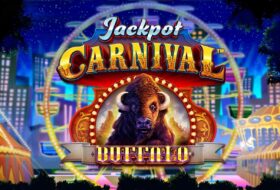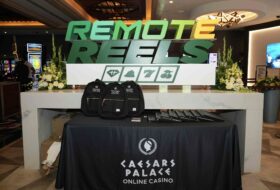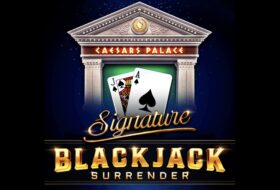
The United States may not have the world’s most progressive gambling laws, but it has produced some of the most creative solutions for circumventing them. Different countries’ legal systems weigh the letter of the law versus its intent in different ways, but the US system leans toward taking things literally. That means American gaming lawyers have made an art form out of inventing products that are technically one thing according to the law, despite feeling very much like another.
Recently, there have been three broad categories of “gambling-adjacent” products sweeping the nation (see what I did there?).
- Lottery couriers, which technically don’t sell lottery tickets online, but buy them on your behalf.
- Predictions exchanges, which feel like sportsbooks but are technically a financial product.
- Sweepstakes casinos, which are play-money casinos that nonetheless pay out cash prizes by way of an attached sweepstakes.
All are popular with players in states that lack the real-money gambling option they’re standing in for. At the same time, they’re all facing regulatory pushback in some of those states, with varying degrees of success.
But this phenomenon isn’t new. And those products aren’t even the craziest examples of the convolutions American companies—and sometimes even lawmakers themselves—use to get around gambling bans or restrictions. Here are my favorites.
#1 Betting blind on races that already happened
Historical horse racing (HHR) tops the list for me, for three reasons. It’s rooted in American history, specifically the history of the once-great horse racing industry, now desperately seeking ways to keep itself afloat. It’s usually invoked not by bad actors, but by states trying to get around the procedural roadblocks of their own legislative systems. And it’s patently absurd on the surface.
The reason for HHR machines’ existence is that parimutuel betting on horses is federally legal unless states ban it—the opposite of other forms of gambling. So it’s easier to authorize particular types of horse betting than to pass a new gambling law, which in many states requires a constitutional amendment.
Meanwhile, those federal laws don’t technically specify that you can’t bet on a race that already happened, or that you have to know which race you’re betting on.
So, it might be hard for a state to legalize slot machines that use a random number generator (RNG) to determine the prize. But an HHR machine asks you to bet on an anonymous horse from a random race that already happened and then uses that result to determine the prize. After that, the game plays out like a slot machine… but it’s not a slot machine, it’s horse racing, you see?
#2 A water tank in the basement makes a building a boat
So-called ‘riverboat’ casinos also hit those same bases: state lawmakers landing on silly-seeming solutions to historical problems.
Actual gambling on riverboats was popular during the heyday of the steam-driven paddlewheelers on the Mississippi and other major eastern rivers. That was especially true in the later phases of that period, after they’d outlived their practical usefulness and focused on recreational appeal instead.
Nostalgia for that period prompted lawmakers in states like Louisiana to invoke riverboat gambling as a way of authorizing casino gambling in a limited way in the 1980s and 1990s. By making slots and casino games legal only aboard a “riverboat,” they limited both the size and location of the casinos.
Over time, the desire to increase revenue has led most riverboat casino states to relax their restrictions. In Illinois, for instance, there’s a full-scale Bally’s resort under construction in Chicago that bears no resemblance to the riverboats originally authorized in the early 1990s.
However, that relaxation of restrictions has typically happened over the course of several steps, with some absurd results in between. Most notably, Missouri allowed its riverboat casinos to move inland, as long as they still floated in a moat. Eventually, the need to float was also relaxed. Century Casino Caruthersville is just a building in any normal sense of the word but has a 2000-gallon water tank buried underneath the facility in order to qualify as being atop a body of water.
#3 Tinkering with the timeline
No-risk machines are the latest evolution in unregulated retail devices that try to play like slots without being slots.
Legal definitions of gambling typically use the phrase “games of chance.” Many states are rife with skill machines that add a strategic choice to the slots-like gameplay in order not to count as gambling. Some state courts have agreed that they avoid the definition of gambling that way, while others have not.
In the states that have banned skill machines, some manufacturers have taken things to the next level. No-risk machines reverse the order of betting and payout, showing the player in advance whether the next play will win or not. Some even use a pre-generated list of outcomes rather than randomly determining them on the fly.
The thing is, people will still pay for a losing spin because they want to see what the next one will be. In practical terms, it’s still very much like a slot machine, except that you have to pay for one losing spin up front to start your session, but can make up for it at the end, by making sure you’re walking away at a time when the next one would have been a loss too.
Despite the cleverness of the scheme, this one doesn’t look like it’ll be around for long. States that have banned skill machines, like Kentucky, are acting quickly against their replacements as well.
#4 In California, craps is a card game
I just learned about this one today, which inspired me to write this post.
California’s gambling laws are, frankly, pretty weird, and they’re hard to update because the state legislature is a quagmire. One of their quirks is the only permissible casino table games—even at tribal casinos—are card-based, because that’s what commercial cardrooms are allowed to offer.
However, you can still play craps at a California casino, it’s just… California craps. Which is craps with cards instead of dice. The dealer has two sets of cards Ace through Six, and flips one from each to simulate the roll of a pair of dice. Mathematically, it’s the same thing, but it feels like it’d be missing something, specifically getting to take your turn as the shooter.
There’s apparently also a version at some casinos that does involve dice. However, since cards have to play a role too, they deal out the cards Ace through Six to a numbered set of boxes on the table, which reassigns the numbers on the dice. For instance, a 2 on the dice might really mean 6, and a 6 might be 3. I’m not sure which version of this is worse, but I think I’ll stick to blackjack if I’m ever gambling in the Golden State.
Bonus Canadian content: Skill-testing questions
As a Canadian, I find this American tendency to game the rules funny and kind of charming. However, in the interest of balance, I should say that my own country does a bit of this as well.
Specifically, anyone who’s ever participated in a sweepstakes or bought a lottery ticket here has probably noticed a “skill-testing question” on the back. That’s typically a simple bit of arithmetic like (11 x 5) – (9 ÷ 3), followed by blank to fill in your answer.
As you can probably guess, this is, like the American skill machines, a ploy to avoid archaic laws against games of chance. In principle, a Canadian lottery is actually a math contest, just one that consists of a single, very easy question. The random draw is technically just the tie-breaker among those who get the correct answer.
The thing is, I’ve never heard of anyone being asked to do the question, let alone denied a prize for getting it wrong. It’s more like a magic spell that one hopes will ward off legal action, like putting “No copyright infringement intended” on YouTube videos that are very obviously infringing.





